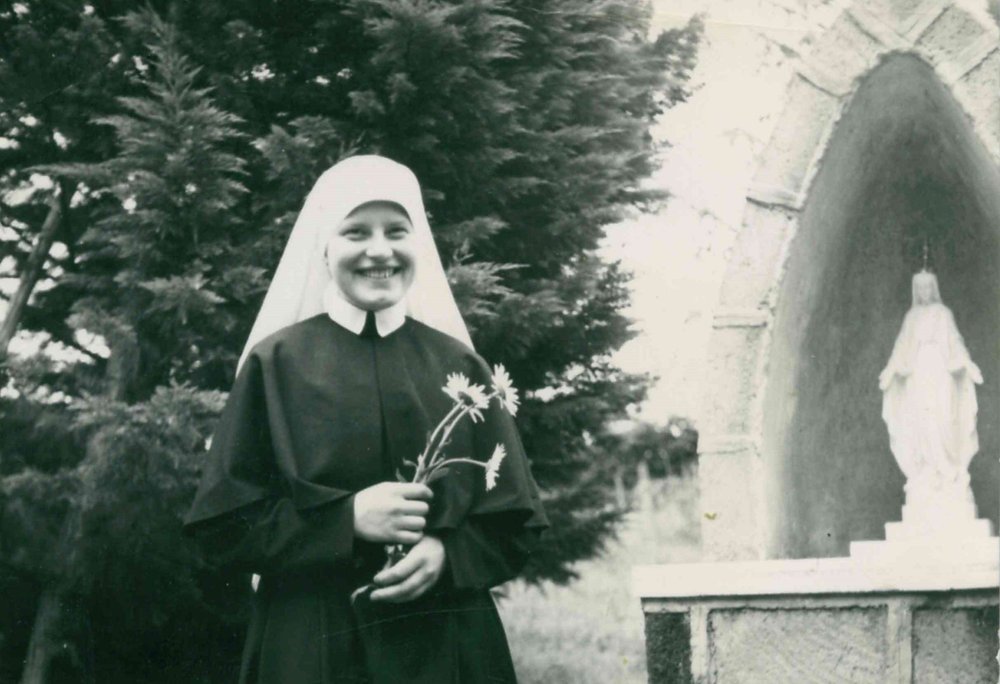The story of the names of young Felician nuns Father Baker guided is one woven with deep faith, community service, and a commitment to the spiritual and social well-being of society. The Felician Sisters, a religious congregation founded in the 19th century, found a steadfast supporter and spiritual guide in Father Nelson Baker, a beloved priest known for his charitable works.
Who Were the Felician Sisters?
The Felician Sisters, formally known as the Congregation of the Sisters of St. Felix of Cantalice, were founded in 1855 in Poland by Blessed Mary Angela Truszkowska. They are part of the Franciscan tradition, focusing on living a life of poverty, chastity, and obedience while dedicating themselves to education, healthcare, and social service.
The Role of Father Baker in Supporting the Felician Sisters
Father Nelson Baker, often simply known as Father Baker, was a priest of the Diocese of Buffalo, New York, who became renowned for his charitable works and deep commitment to the Catholic faith. In the late 19th and early 20th centuries, he worked closely with the Felician Sisters, providing both spiritual guidance and practical support.
The Founding of the Felician Congregation
The Felician Sisters were founded at a time of significant social change and upheaval in Poland. The congregation quickly grew, and its members became known for their deep spirituality and tireless service.
Expansion of the Felician Sisters in North America
The Felician Sisters’ expansion to North America began in the late 19th century, with the first group arriving in Wisconsin in 1874. They quickly established schools, orphanages, and other institutions to serve the growing immigrant communities, especially those of Polish descent.
How Father Baker Became Involved with the Felician Sisters
Father Baker’s involvement with the Felician Sisters began when he took over as the pastor of Our Lady of Victory Basilica in Lackawanna, New York. Recognizing the alignment of their missions, Father Baker invited the Felician Sisters to help manage the institutions he had founded, including an orphanage, a home for unwed mothers, and a hospital.
Father Baker’s Vision for Young Felician Nuns
Father Baker had a clear vision for the young Felician nuns under his guidance. He believed in fostering a deep spiritual life combined with practical service to others. This vision greatly influenced the training and formation of the young nuns.
Training and Education of Young Felician Nuns
The formation of young Felician nuns during Father Baker’s time was a comprehensive process that combined spiritual, academic, and practical training. Young women who felt called to the religious life would enter the convent and undergo a period of initial formation, known as the postulancy, followed by the novitiate, where they would learn more about the religious life and the specific charism of the Felician Sisters.
Daily Life and Duties of Young Felician Nuns
They participated in communal prayers, attended Mass, and engaged in personal reflection and study. Work duties could include teaching, nursing, or administrative tasks, all carried out with a spirit of humility and service. This structured routine helped the young nuns develop discipline and a deep sense of purpose in their religious vocation.
Spiritual Guidance Provided by Father Baker
Father Baker was known for his spiritual wisdom and his ability to inspire those around him. He provided regular spiritual direction to the young Felician nuns, encouraging them to cultivate a personal relationship with God and to see their work as an extension of their faith.
Charitable Works and Community Service Inspired by Father Baker
Under Father Baker’s guidance, the young Felician nuns engaged in numerous charitable works and community service projects. They worked in orphanages, provided education to children from disadvantaged backgrounds, and offered care to the sick and elderly.
The Process of Receiving a Religious Name
One of the significant milestones in the formation of a young Felician nun was the receiving of a religious name. This name symbolized her new identity in Christ and her commitment to the religious life. The process of choosing a name was often a deeply spiritual one, involving prayer and reflection. Sometimes, the names would honor saints or reflect particular virtues the new nun wished to embody.
Examples of Names Chosen by Young Felician Nuns
The names chosen by young Felician nuns often reflected their personal devotion or the qualities they aspired to in their religious life. These names were more than just identifiers; they were a testament to the nun’s spiritual journey and aspirations.
Lasting Impact of Father Baker’s Work with the Felician Sisters
Father Baker’s work with the Felician Sisters had a profound and lasting impact. His vision of service, combined with a deep spiritual foundation, influenced generations of young Felician nuns who went on to serve in various capacities across North America.
Current Role of the Felician Sisters in Society
Today, the Felician Sisters continue to play a vital role in society, running schools, hospitals, and social service organizations across North America and beyond. They remain dedicated to their mission of serving the most vulnerable, adapting their ministries to meet contemporary needs while remaining rooted in their rich spiritual heritage.
Steps Toward Sainthood for Father Baker
The process of Father Baker’s beatification, the first step toward sainthood, reflects his significant contributions to the Catholic Church and society at large. The process involves a thorough examination of his life, works, and the miracles attributed to his intercession.
How the Young Felician Nuns Contributed to Father Baker’s Legacy
The young Felician nuns played a crucial role in building Father Baker’s legacy. Through their dedication to education, healthcare, and social service, they embodied the principles that Father Baker held dear.
Conclusion
Reflecting on the influence of Father Baker on the Felician Sisters reveals a story of faith, dedication, and service that continues to inspire. The names of young Felician nuns Father Baker guided are not just a list but a testament to a legacy of spiritual and social commitment. Today, the Felician Sisters continue to embody this legacy, serving as a beacon of hope and charity in a world in need of compassion and care.
FAQs
Who were the Felician Sisters, and what was their mission?
The Felician Sisters, or the Congregation of the Sisters of St. Felix of Cantalice, were founded in 1855 in Poland. Their mission focuses on education, healthcare, and social service, particularly serving the most vulnerable members of society.
What was Father Baker’s role with the Felician Sisters?
Father Baker provided spiritual guidance and practical support to the Felician Sisters, helping them expand their charitable works in North America. He worked closely with the sisters to serve orphans, unwed mothers, the elderly, and the poor.
How did Father Baker influence the young Felician nuns?
Father Baker influenced the young Felician nuns by providing spiritual direction, encouraging a deep commitment to faith and service, and fostering a spirit of practical charity. His guidance helped shape the formation and mission of the young nuns.
What is the process of becoming a Felician nun?
The process of becoming a Felician nun involves a period of initial formation, known as postulancy, followed by the novitiate, where candidates learn more about the religious life and the specific charism of the Felician Sisters. This process includes spiritual, academic, and practical training.
How are religious names chosen for young nuns?
Religious names for young nuns are chosen through a process of prayer and reflection, often honoring saints or embodying virtues that the new nun wishes to reflect in her religious life.





